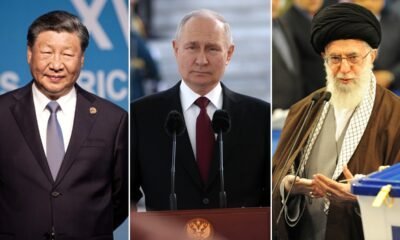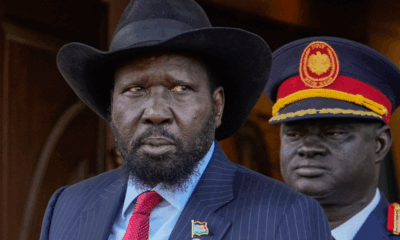INTERNACIONAL
Talk of low Houthi weapon supply is ‘premature,’ expert warns

A top U.S. Air Force commander believes Houthi rebels in Yemen may be low on weapon supplies as American and allied strikes on the group have eroded their capabilities.
U.S. Forces Central Command Commander Lt. Gen. Alexus Grynkewich told reporters last week that American retaliatory strikes on the Iran-backed Houthi military group have «certainly affected their behavior» and possibly helped to deplete their weapon supplies, according to a report in the Associated Press.
«The challenge for us is understanding what the denominator was at the beginning. In other words, what did they have on hand to start with? We obviously know how much we have struck and we have assessments of how successful those strikes were,» Grynkewich said.
US, COALITION FORCES DEFEAT HOUTHIS’ ‘LARGE-SCALE ATTACK’ IN RED SEA, SHOOT DOWN AT LEAST 28 DRONES

Houthi supporters attend a rally in Sanaa, Yemen, on March 8. (AP/Osamah Abdulrahman)
Grynkewich also cited the group’s «pace of operations» in recent weeks, noting that it «is not what it once was» while cautioning that potential «Iranian resupply» could complicate evaluations of just how low the group is on weapons.
The Iranian-backed Houthis have conducted almost daily attacks on both commercial and military shipping in the Red Seas and Gulf of Aden in recent months, typically using drones and missiles launched from areas in Yemen under rebel control.
Those attacks, which have slowed in recent weeks, have disrupted commercial shipping routes in the region, leading to a U.S. and allied response that has included increased military ship patrols and a wider array of retaliatory strikes on weapons and ammunition facilities. U.S. fighter jets have also bombed Houthi drones and missiles as they were being put in place for launch.
Howerver, Dr. Sumatra Maitra, the director of research and outreach and the conservative American Ideas Institute, cautioned against such an optimistic assessment of the group’s capabilities.
BIDEN TO HAVE US MILITARY BUILD A PORT IN GAZA
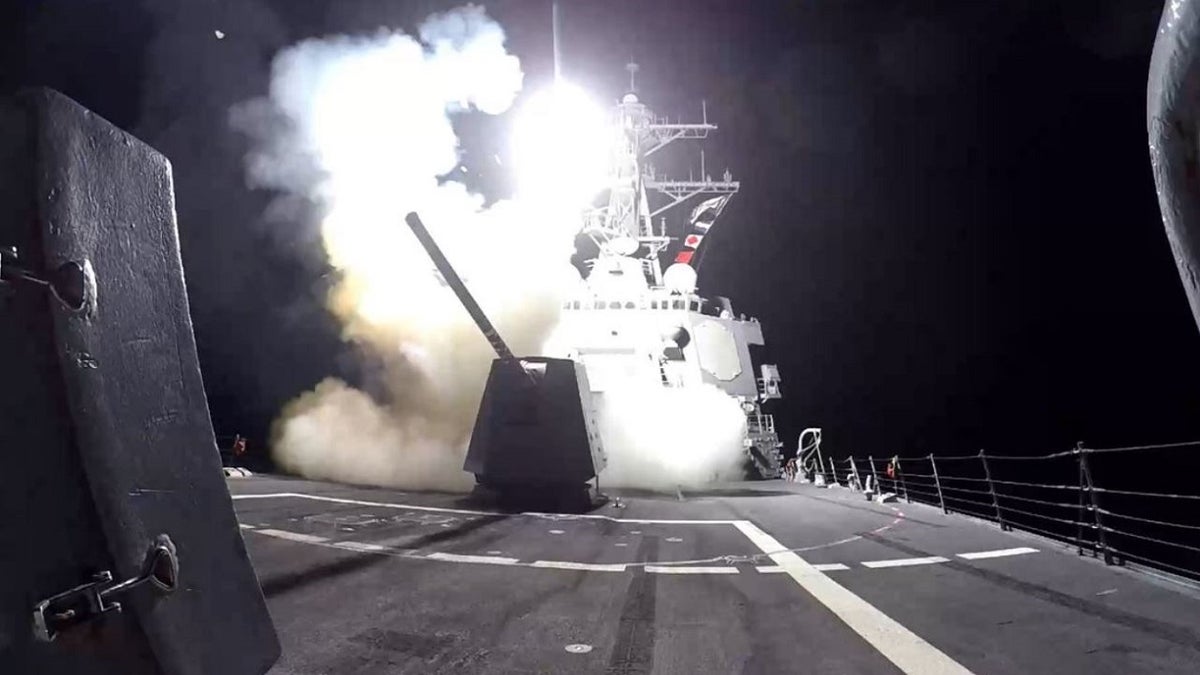
A missile is launched from a warship during the U.S.-led coalition operation against Yemen’s Houthi rebels in early February. Over the weekend, the U.S. and the United Kingdom conducted joint strikes against the Houthis. (U.S. Central Command)
«I don’t think they are low on weapons, I think that’s a premature opinion,» Maitra told Fox News Digital.
Maitra pointed out that the Houthis rely on «a lot of dumb weapons that don’t need targeting,» which also includes «low grade drones» that are inexpensive to produce and replenish.
Instead, Maitra pointed to the increased patrols by U.S. and allied militaries as being one of the primary drivers of the recent slowdown in Houthi activity. Another potential reason for the slowed pace could be because of instructions from Tehran, Iran, where the Iranian government is involved in negotiations between the Biden administration, Israel and Hamas in Gaza.
«The Iranians have probably told them – because they are their main suppliers – ‘you need to hold your horses, we are negotiating with these people,’» Maitra said.
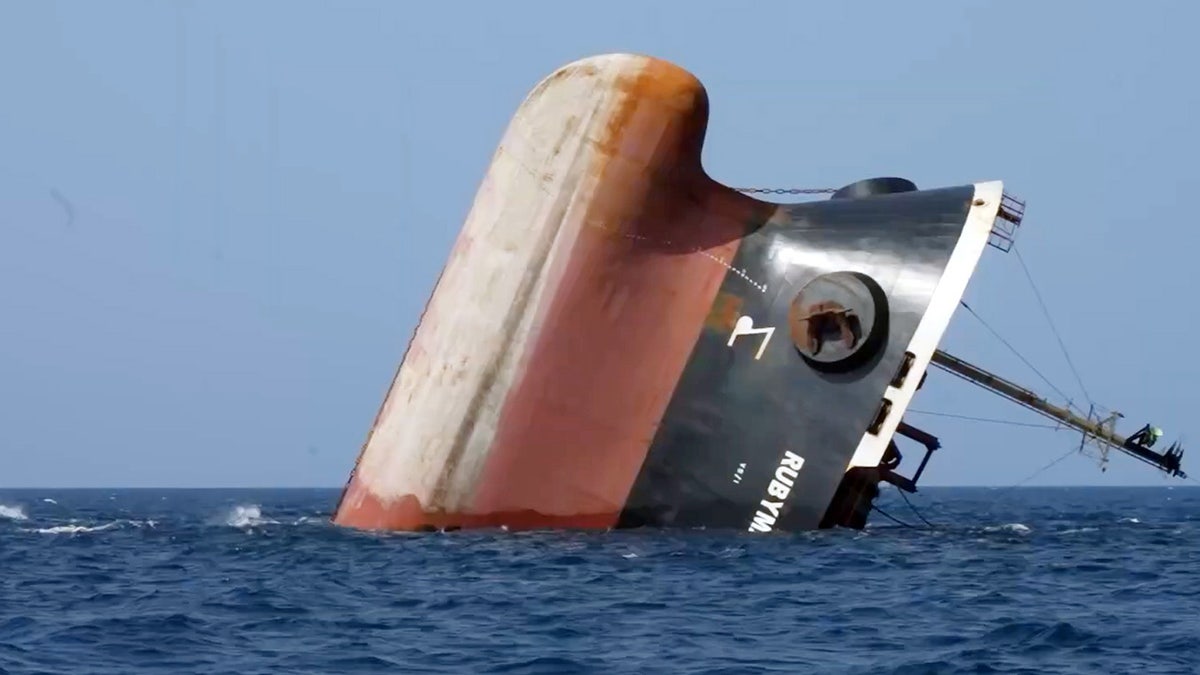
The British-registered cargo ship Rubymar sinks after it was targeted by Yemens Houthi forces in international waters in the Red Sea on March 7, 2024. (Al-Joumhouriah channel via Getty Images)
YEMEN’S HOUTHIS HAVE A HYPERSONIC MISSILE, REPORT CLAIMS
The Pentagon did not immediately respond to a Fox News Digital request for comment.
According to the AP report, the U.S. military believes that the Houthis had dozens of anti-ship ballistic missiles when they started their campaign, which the group has defended as an effort to pressure Israel into ending its war in Gaza.
While attacks on U.S. forces by other Iranian-backed militias in countries such as Iraq and Syria have largely decreased since U.S. retaliatory strikes in February, Grynkewich noted that the Houthis are more independent of Iran and might not always be «responsive» to instructions from Tehran.
Maitra echoed a similar sentiment, arguing that the group can «decide on their own» strategy and can be «far more fanatic.»
«They have a very different way of looking at global politics,» Maitra said.

People lift their rifles and chant slogans while participating in a protest staged in solidarity with Palestinians and Yemens Houthi rebels in Sanaa, Yemen, on March 22. (Mohammed Hamoud/Getty Images)
CLICK HERE TO GET THE FOX NEWS APP
That reality could lead to an uptick in attacks with little warning, with Maitra arguing that the group does not have as big of a stake in the Iranian talks with the White House.
«The Houthis don’t really care about who’s ruling in Iraq or what kind of negotiations Iran and the Biden administration are having,» Maitra said. «Their calculation is very different from ours.»
INTERNACIONAL
German Chancellor Olaf Scholz loses no-confidence vote, election called for early next year

The German parliament accepted Chancellor Olaf Scholz’s invitation to withdraw its confidence in him and his government on Monday, clearing the way for an early election on Feb. 23 necessitated by the collapse of his government.
Scholz’s three-party coalition fell apart last month after the pro-market Free Democrats quit in a row over debt, leaving his Social Democrats and the Greens without a parliamentary majority just as Germany faces a deepening economic crisis.
Under rules designed to prevent the instability that facilitated the rise of fascism in the 1930s, President Frank-Walter Steinmeier can only dissolve parliament and call an election if the chancellor calls, and loses, a confidence vote.
German Chancellor Olaf Scholz arrives at the lower house of parliament Bundestag in Berlin, Germany, on Dec. 16, 2024, to hear whether the parliament will rescind its confidence vote. (Liesa Johannssen)
GERMANY’S SCHOLZ REJECTS CALLS FOR NO-CONFIDENCE VOTE AS COALITION GOVERNMENT COLLAPSES
The debate preceding the vote also opened serious campaigning for the election, with party leaders trading ill-tempered barbs.
The chancellor and his conservative challenger, Friedrich Merz, who surveys suggest is likely to replace him, charged each other with incompetence and lack of vision.
Scholz, who will head a caretaker government until a new one can be formed, defended his record as a crisis leader who had dealt with the economic and security emergency triggered by Russia’s full-scale invasion of Ukraine in 2022.
If given a second term, he said, he would invest heavily in Germany’s creaking infrastructure rather than making the spending cuts he said the conservatives wanted.
«Shortsightedness might save money in the short term, but the mortgage on our future is unaffordable,» said Scholz, who served four years as finance minister under a previous coalition with the conservatives before becoming chancellor in 2021.
GERMAN CHANCELLOR SCHOLZ WARNS NEXT EUROPEAN COMMISSION PRESIDENT AGAINST COURTING FAR-RIGHT SUPPORT
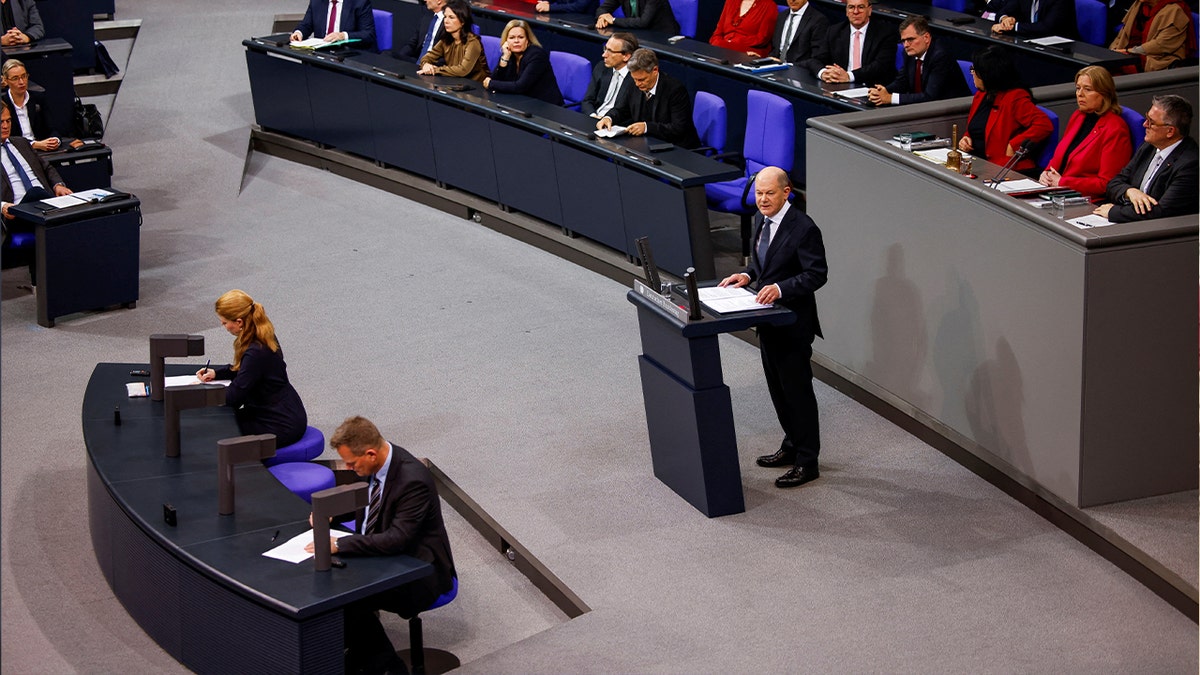
German Chancellor Olaf Scholz speaks on the day of a confidence vote at the lower house of parliament Bundestag in Berlin, Germany, on Dec. 16, 2024 (Axel Schmidt)
Merz told Scholz his spending plans would burden future generations and accused him of failing to deliver on promises of rearmament after the start of the Ukraine war.
«Taking on debt at the cost of the young generation, spending money – and you didn’t say the word ‘competitiveness’ once,» said Merz.
Neither mentioned the constitutional spending cap, a measure designed to ensure fiscal responsibility that many economists blame for the fraying state of Germany’s infrastructure.
Conservatives In Clear Lead In Opinion Polls
The conservatives have a comfortable, albeit narrowing lead of more than 10 points over the SPD in most polls. The far-right Alternative for Germany (AfD) is slightly ahead of Scholz’s party, while the Greens are in fourth place.
The mainstream parties have refused to govern with the AfD, but its presence complicates the parliamentary arithmetic, making unwieldy coalitions more likely.
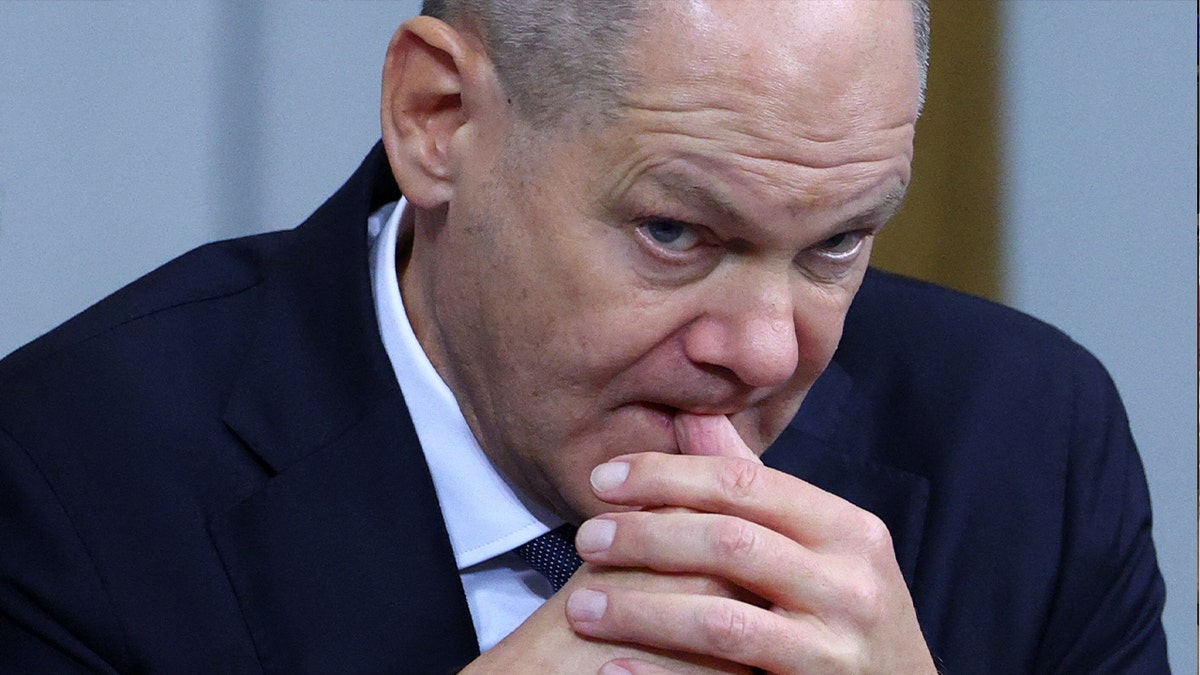
Germany’s Olaf Scholz has lost a confidence vote from the German parliament, paving the way for an early election to replace the chancellor. (Lisi Niesner)
Scholz has outlined a list of measures that could pass with opposition support before the election, including $11 billion in tax cuts and an increase in child benefits already agreed on by former coalition partners.
The conservatives have also hinted they could back measures to better protect the Constitutional Court from the machinations of a future populist or anti-democratic government and to extend a popular subsidized transport ticket.
CLICK HERE TO GET THE FOX NEWS APP
Measures to ease unintended burdens on taxpayers could also pass if regional governments agree, but Merz rejected a Green proposal to cut energy prices, saying he wanted a totally new energy policy.
Robert Habeck, the Greens’ chancellor candidate, said that was a worrying sign for German democracy, given the growing likelihood in a fractured political landscape that very different parties would again have to govern together.
«It’s very unlikely the next government will have it easier,» Habeck said.
AfD leader Alice Weidel called for all Syrian refugees in Germany to be sent back following the collapse of Bashar al-Assad’s regime.
-
POLITICA3 días ago
Hugo Moyano acusó al Gobierno de querer meterse en las paritarias para que el aumento no supere el 1% y amenaza con un paro antes de fin de año
-
POLITICA2 días ago
Causa Hotesur-Los Sauces: la Corte rechazará el último recurso de Cristina Kirchner y abre el camino para el juicio oral
-
POLITICA2 días ago
Patricia Bullrich habló sobre el gendarme detenido en Venezuela y reveló dónde lo tiene encerrado el régimen de Nicolás Maduro
-
POLITICA2 días ago
Polémica: a partir de enero, los senadores pasarán a cobrar dietas de 9,5 millones de pesos mensuales
-
POLITICA1 día ago
Si Milei hace el 15 por ciento de lo que prometió, se queda ocho años
-
CHIMENTOS1 día ago
Por qué afirman que Javier Milei y Yuyito González están al borde de la separación: «Ya no la aguanta más»

